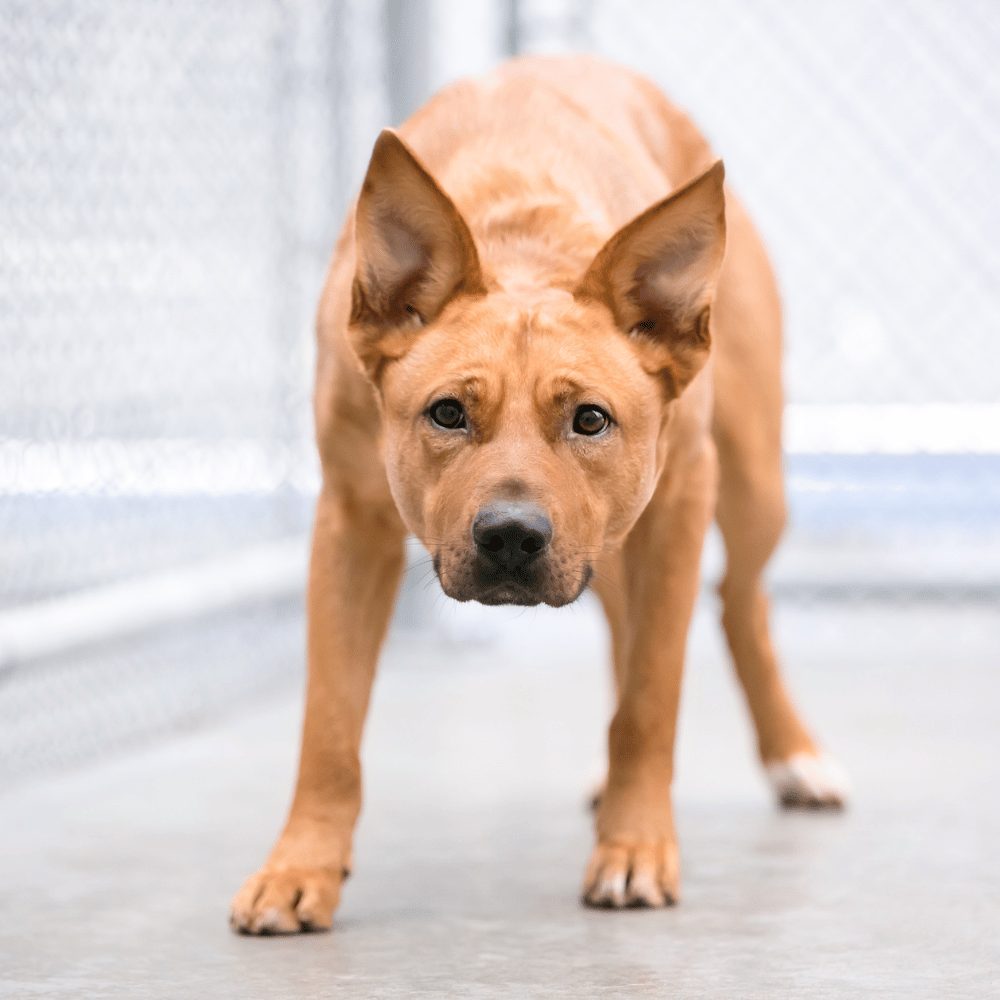The 4th of July is a time for celebration with cookouts, patriotic displays, and fireworks lighting up the sky. For many pets, however, this holiday is not a festive occasion but a source of intense anxiety and fear. Whether it is a large public show or backyard fireworks in the neighborhood, sudden loud noises can trigger pet anxiety, making pets feel overwhelmed and unsafe.
Understanding how noise impacts animals, recognizing the signs of distress, and creating a calm space are essential steps toward helping your pet feel secure during the holiday. This guide offers practical tips and guidance on when to seek support from your veterinary team.
Why Pets React to Fireworks and Loud Sounds
Animals experience the world through heightened senses. Sudden, loud noises, especially when paired with bright flashes and unfamiliar vibrations, can easily trigger a fear response. This reaction is common in both dogs and cats and often intensifies with age or past experiences.
Fireworks are especially stressful because of their unpredictable nature. Unlike thunder or construction noise, fireworks do not follow a pattern, making it harder for pets to adapt or recover once startled.
Signs of Noise-Triggered Anxiety in Dogs and Cats
Each pet expresses stress differently, but common behaviors associated with pet anxiety during fireworks include:
- Hiding under furniture or in closets
- Shaking or trembling
- Excessive vocalization (whining, barking, or yowling)
- Panting or drooling
- Destructive behavior
- Attempts to escape or flee
- Loss of appetite or refusal to play
- Urination or defecation indoors (in previously trained pets)
In cats, signs of cat stress may also include dilated pupils, flattened ears, increased aggression, or avoidance behaviors.
Proactive Ways to Reduce Noise Anxiety
Preparing before the fireworks begin is key. These steps can help your pet stay calm and feel supported during loud celebrations:
1. Create a Safe Space
Set up a quiet room with dim lighting and your pet’s favorite bed or blanket. Close windows, draw curtains, and use a fan or white noise machine to soften outdoor sounds.
2. Offer Comfort, but Let Your Pet Lead
Some pets seek out closeness, while others prefer to be alone. Let your pet choose. Remain calm and speak gently. Your presence alone may be reassuring.
3. Play Calming Music or Background Noise
Soothing instrumental music or low-volume television can provide a comforting backdrop that helps mask sudden bursts of noise.
4. Maintain a Routine
Keep daily routines intact, including feeding times and walks. Routine provides a sense of stability that helps reduce anxiety.
5. Avoid Punishment
Never scold a pet for anxious behavior. Fear responses are involuntary. Use calm, gentle reinforcement and give them space as needed.
6. Use Calming Products
Pheromone diffusers, anxiety wraps, or veterinarian-recommended supplements may help reduce nervous behaviors. Always consult your veterinarian before introducing new products.
7. Secure the Environment
Make sure all doors, gates, and windows are closed and secure. Even well-trained pets may bolt if startled by fireworks.
When Medical Support May Be Appropriate
If your pet shows extreme distress or does not calm down despite your efforts, veterinary intervention may be necessary. Anti-anxiety medications or sedatives can provide relief during high-stress events like the 4th of July.
Some pets may benefit from a long-term anxiety management plan that includes behavior modification, desensitization, and nutritional support.
If your pet experiences severe stress after hours, PVESC’s 24/7 Emergency Room is available to provide support for urgent needs.
Give Your Pet the Calm They Deserve This 4th of July
The 4th of July should be memorable for the right reasons, not because your pet experienced distress. By preparing your home, understanding your pet’s needs, and taking proactive steps to manage pet anxiety from fireworks, you can help your companion feel safe, secure, and supported throughout the holiday.
While general stress and anxiety should be discussed with your primary care veterinarian, if your pet experiences a true emergency—such as injury, extreme distress, or unmanageable symptoms—our team at Portland Veterinary Emergency and Specialty Care is available 24/7 to provide urgent support with compassion and care.
